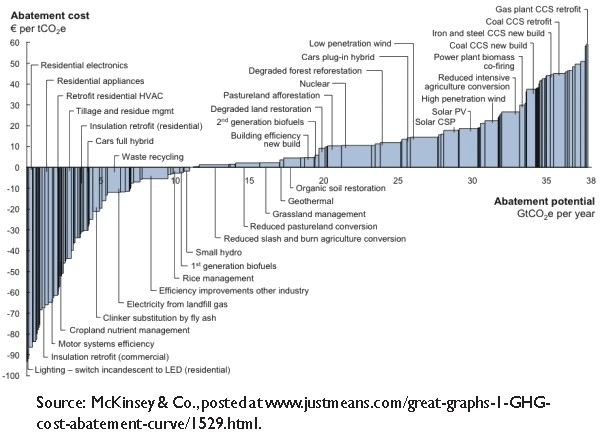Greenhouse Gas Regulation UpdateBy Jim Lazar
First and foremost, the Obama administration, through the Environmental Protection Agency, is adopting strict standards for new major energy and industrial facilities, limiting greenhouse gas emissions under the Clean Air Act. This will be hotly contested by the House, and undoubtedly challenged in court by industry. If it is effective, however, it will basically prohibit any new conventional coal plants from being built. Second, the state of California is moving ahead with implementation of the California Greenhouse Gas Reduction Act, known as AB32. This will set a hard limit on emissions, and require emitters to secure allowances for all of their emissions. It starts in 2012 with electric power plants and large industrial facilities, and is scheduled to expand in 2015 to include natural gas utilities and transportation energy usage. California voters turned down an initiative, sponsored by the oil industry, to delay the effective date. However, voters also approved a new definition of "tax" that may make it difficult to impose the carbon emission fees required to implement AB32. Third, there are three regional efforts underway. The Regional Greenhouse Gas Initiative (RGGI) is operating in New England, limiting electric sector emissions. The Western Climate Initiative (WCI), a group of states and provinces, is moving ahead with a multi-jurisdiction carbon trading plan. The initial participants will likely include California, New Mexico, Ontario, Quebec, and British Columbia. Oregon and Washington are "members" but have not adopted legislation to implement GHG controls. Finally, there is a Midwest Greenhouse Gas Reduction Accord (MGGRA), which is moving more slowly. The real positive action on emissions, however, is happening in other ways, apart from direct regulation of GHG emissions. First, the Obama administration has adopted newer, stricter automotive fuel economy standards and appliance efficiency standards. Second, many states have adopted newer building codes; Washington's new (best in the country!) energy code, effective January 1, 2011, will reduce energy use in new buildings by about 17%. Third, many states have effective bans on new coal plants; this includes Washington, Oregon, and California. Fourth, most states (including Washington) have adopted renewable energy portfolio standards, and many (including Washington) have adopted energy efficiency standards for electric and natural gas utilities. So, quite a bit is going on, despite the stall-out in Congress. The potential for GHG emission reductions through these types of programs is huge. The graphic below, prepared by McKinsey and Co. for the Energy Foundation, shows the "Greenhouse Gas Abatement Curve." It shows that energy efficiency generally more than pays for itself in energy savings, so the GHG reductions are free or better-than-free. Improved agricultural methods are also very cheap. It also shows that there are some very high-cost measures, like solar photovoltaic electricity (but solar costs are coming down over time) and retrofitting coal plants to capture CO2. [Note: that the nuclear power cost estimates reflected in this graphic have since been revised sharply upward, so nuclear will NOT be as cost-effective as shown here.] The challenge for us is to find ways to achieve the low-cost solutions, because these both help the economy and reduce emissions. We need to do so without spending so much that we weaken the economy, because if we do, the backlash will likely be swift, sure, and severe. That means concentrating on the cheap stuff first. What should you do? Spend a few hours this month identifying potential energy savings in your home. Weatherstrip a door. Replace a window. Consider a new refrigerator. Unplug your cellphone charger when it's not charging. It will save you some money, and help save the planet. Jim Lazar, is a Consulting Economist based in Olympia, Washington.
Back to Home page. |

 The last Congress did not pass a comprehensive climate bill regulating and limiting greenhouse gas (GHG) emissions. The new Congress is quite certain to not pass a comprehensive climate bill. So what will happen, and what can we do as our planet heats up?
The last Congress did not pass a comprehensive climate bill regulating and limiting greenhouse gas (GHG) emissions. The new Congress is quite certain to not pass a comprehensive climate bill. So what will happen, and what can we do as our planet heats up?